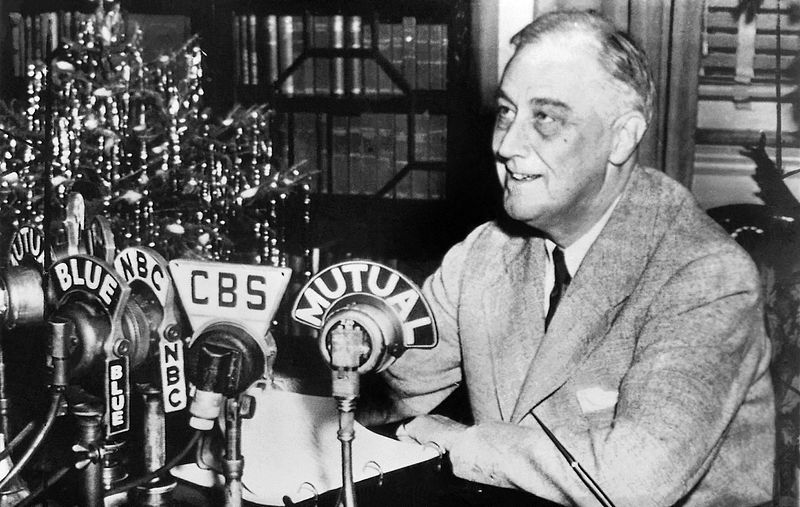Authors:
Historic Era: Era 8: The Great Depression and World War II (1929-1945)
Historic Theme:
Subject:
September 2020 | Volume 65, Issue 5


Authors:
Historic Era: Era 8: The Great Depression and World War II (1929-1945)
Historic Theme:
Subject:
September 2020 | Volume 65, Issue 5
Editor's Note: Stephen Bates teaches First Amendment law, writing, and other subjects at the University of Nevada in Las Vegas. His latest book is An Aristocracy of Critics: Luce, Hutchins, Niebuhr, and the Committee That Redefined Freedom of the Press(Yale University Press), from which this essay was adapted.

Donald Trump is hardly the first president to wage war on the press. Thomas Jefferson denounced the “spirit of falsehood” driving newspaper publishers. Grover Cleveland said that newspaper lying reached new heights during his White House years. Both Woodrow Wilson and Harry Truman threatened to punch reporters for writing uncharitably about their daughters. Richard Nixon told his aides that the press is “the enemy.” But few battles equal the one between Franklin D. Roosevelt and the press, especially the Chicago Tribune and its quirky publisher, Robert R. McCormick.
Critics called McCormick one of the great minds of his time. Born in 1880, he studied at Groton and Yale and served with the American Expeditionary Force in World War I, rising to the rank of colonel, a title he used for the rest of his life. McCormick was an Ivy Leaguer wary of higher education. New York Times publisher Adolph Ochs once considered having the presidents of Harvard, Yale, and Princeton guide Times editorial policy. “I urged him very strongly against this,” McCormick said. Inconsistency, his biographer Richard Norton Smith points out, never troubled McCormick. When someone proposed adding a book section to the newspaper, he said no. “Readers of the Tribune don’t read books.” Yet during the Depression, the Tribune’s WGN aired highbrow radio shows produced by the Illinois Writers’ Project. In his spare time, McCormick scoured the Encyclopedia Britannica for errors. Why, he asked Britannica publisher William Benton in 1945, did the entry on plumbing omit Louis XIV’s celebrated pipe from Versailles to the Seine?
The Colonel’s eccentricities were legendary. Offended by the capriciousness of English spelling, he tried to fix it. The Tribune denounced “totalitarian philosofy” and government “burocrats.” Smith writes, “Whether the Colonel was brilliantly inventive or merely unhinged was a much debated topic around the Tribune.” Either way, the voice of the Tribune was the voice of the Colonel. The newspaper protected his friends—he assured New York Times publisher Arthur Hays Sulzberger (Ochs’s successor) that “nothing objectionable” to him “should appear in print in the Tribune”—and savaged his enemies. An isolationist, he especially despised the internationalist Henry Luce, editor in chief of Time Inc. In an article, not a column or editorial, the Tribune reported that “Luce, who wields dictatorial power over his magazines and nurses imperialistic ambitions that vie with those of a Mussolini, was born in China but is not a Chinaman.”
See also: "To Fix The